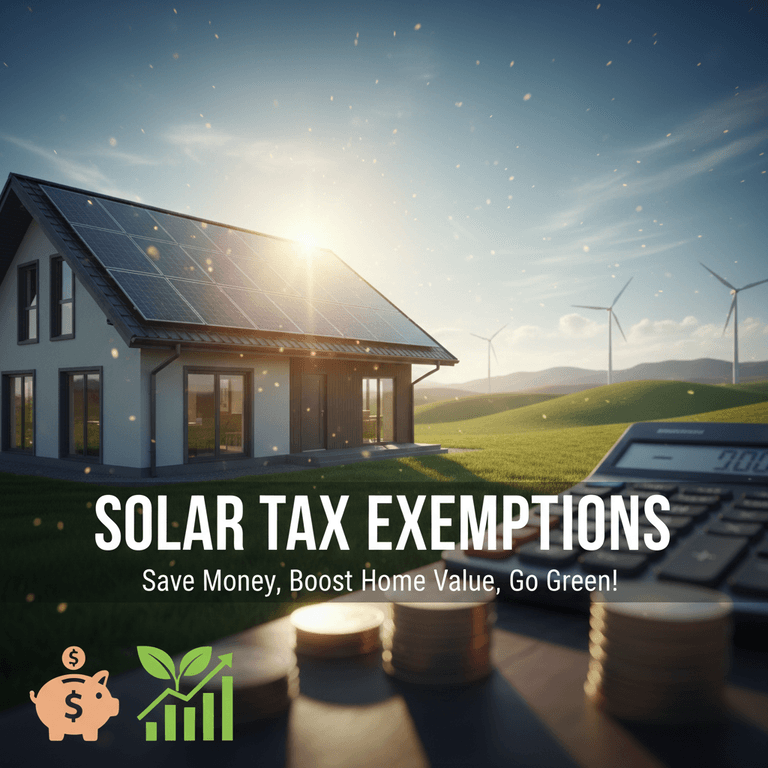Yes, solar panels qualify for significant tax exemptions in the United States. Currently, 25 states offer sales tax exemptions on solar equipment purchases, 36 states provide property tax exemptions that protect homeowners from increased taxes despite higher property values, and all Americans can access the federal solar investment tax credit worth 30% of total installation costs. These combined exemptions can reduce your solar system’s total cost by 40% or more, making renewable energy investments substantially more affordable for homeowners nationwide.
Solar tax exemptions operate at three government levels: municipal/county sales tax relief, state property tax exemptions, and federal incentive programs through the ITC. For example, in states with 6% sales tax exemptions, you save $960 on a $16,000 solar system, while property tax exemptions prevent your tax bill from increasing even when solar panels boost your home value by an average of 4.1%. The federal ITC covers solar panels, installation labor, inverters, wiring, batteries, and even sales taxes in non-exempt states, but only applies to purchased or financed systems, not leased panels.
This guide breaks down available exemptions state-by-state, explains how each tax benefit works, calculates potential savings, and provides actionable steps to claim every dollar you qualify for in 2025.

Sales Tax Exemptions for Solar Systems
State governments designate solar sales tax exemptions as popular financial incentives. The Solar Energy Industries Association reports 25 states currently provide solar sales tax exemptions.
Understanding this benefit matters: Most states impose consumer purchase taxes ranging from 2.9% to 9.5%.
Solar sales tax exemptions eliminate these taxes on solar panel purchases, solar battery systems, and related solar equipment. This waiver substantially reduces total purchase costs, enhancing solar investment affordability.
Consider this example: A state with 6% sales tax adds $960 on a residential solar design valued at $16,000, totaling $16,960. States offering solar sales tax exemptions allow you to pay only the base $16,000.

Property Tax Exemptions for Solar Installations
The Solar Energy Industries Association identifies 36 states offering property tax exemptions for residential solar system installations.
Here’s how it works: Solar panel installations typically boost property values significantly. Homeowners experience an average property value increase of approximately 4.1% after installing solar. States with renewable energy property tax exemptions protect homeowners from corresponding property tax increases despite rising home values.
Simply put: Your home’s value increases, but your property tax bill remains unchanged.
State-by-State Solar Tax Exemption Analysis
State regulations vary significantly regarding sales and property tax exemptions for solar installations. Review the comprehensive table below to identify tax incentives available in your location:
100% Exempt / Full Exemption
Partial / Time-Limited Exemption
No Exemption
No State Sales Tax
